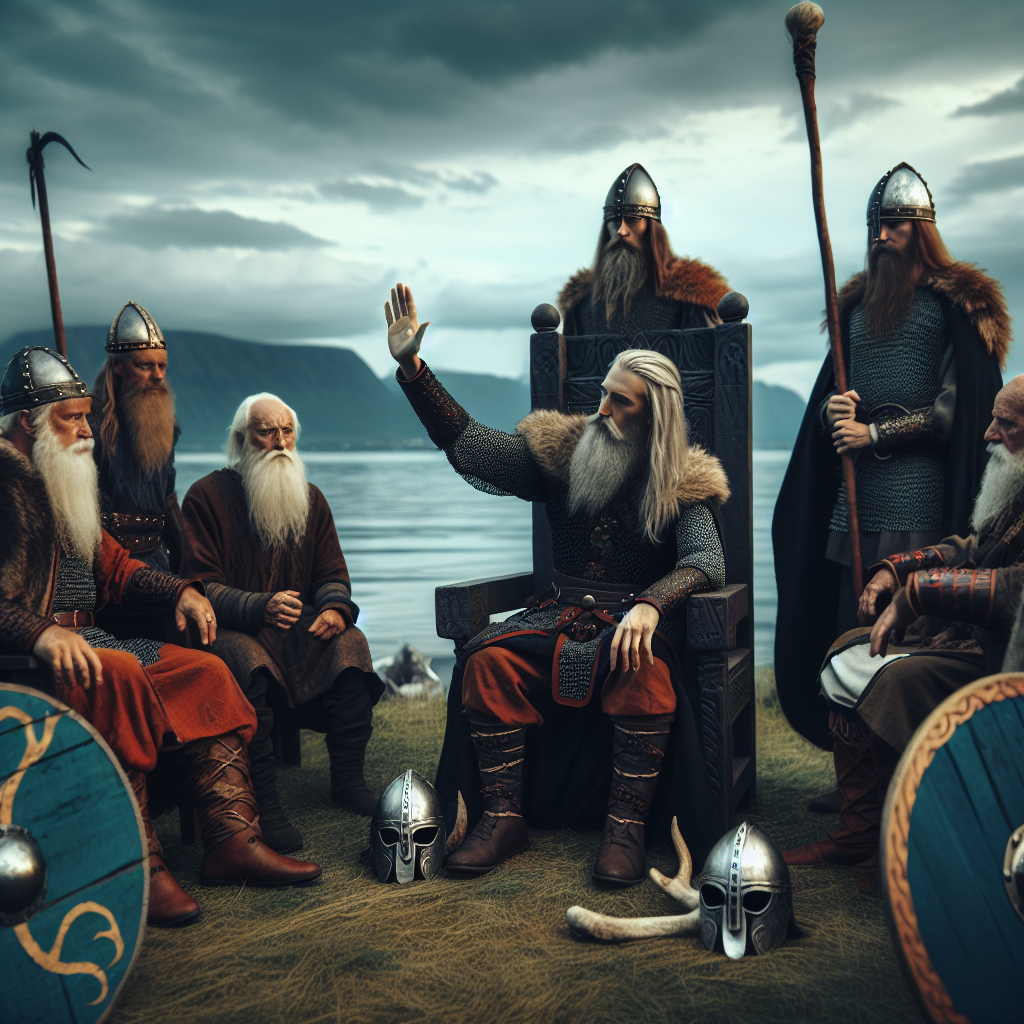A king against the sea
The power of Canute the Great

King Canute stops the waves of the sea – AI generated image
Canute "the Great" (in Danish, Knud den Store) was King of Denmark from 1016 until his death, King of England from 1018, and King of Norway from 1028. He assumed power from his father, Sweyn I (963–1014), establishing what would become known as the "North Sea Empire." Renowned as one of the greatest rulers of his time, Canute was deeply devoted to Christianity while also retaining allegiance to his former pagan beliefs—a common practice among the Norse, who often remained loyal to their pagan deities based on who seemed more favorable to pray to in different circumstances.
In England, one of the most enduring legends associated with this Danish-English king is that of Canute and the tide. According to popular accounts, Canute the Great had his throne placed at the shoreline, and as he sat upon it, he commanded the sea's tide—uttering the words, "Stop, tide!"—to halt its advance. This display was intended to demonstrate to one of his noblemen (who had incited him to try) that he could not halt the ocean's waves. Inevitably, his feet were soaked as the waves reached the shore.
Initially, this act was interpreted as an attempt to glorify the king’s power—a supposed display of "Caesaropapism," the notion of limitless temporal and spiritual authority. However, it later became understood that Canute, weary of the flattery of his courtiers, sought instead to show his nobles the finite nature of his earthly power. Despite being the ruler of three kingdoms and blessed by divine favor, he could not command all things in this world, like the sea. Through this gesture, he rebuked those who perceived him as a godlike figure, encouraging them to think rationally rather than accepting his words unconditionally.
Thus, Canute’s act, initially perceived as arrogant, transforms into an act of humility, where the king acknowledges the boundaries of his power and will. This act provided his nobles and other European rulers with a powerful lesson in humility, befitting his epithet, "the Great."
Tom Shippey, Vita e morte dei grandi vichinghi, Odoya, 2021
2025-04-10
Salvatore Ciccarello
